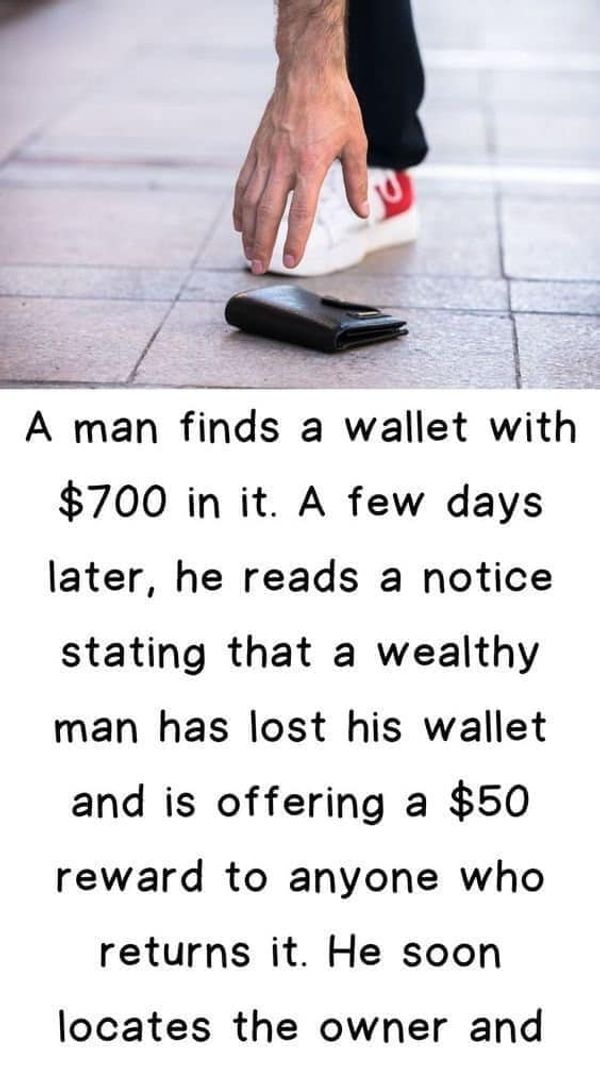
Once upon a time, a middle-aged man stumbled upon a wallet on the street. To his astonishment, it contained a significant sum of $700. Days later, he stumbled across a notice that a wealthy individual had lost his wallet and was offering a $50 reward for its return.
Without hesitation, the honest man connected the dots and sought out the wallet’s owner. Upon meeting, he handed over the wallet, eager to do the right thing. As the wealthy man eagerly counted the money, he made an unusual comment: “I see you have already taken your reward.”
Confused, the poor man replied, “What are you talking about? I haven’t taken a penny.”
Unfazed, the rich man continued, “This wallet had $750 in it when I lost it.” A heated argument ensued between the two, escalating to the point where they decided to settle the matter in court.
Both men presented their cases to the judge, with the poor man going first, followed by the wealthy man. The wealthier citizen concluded his argument by saying, “Your Honor, I trust you, and you trust me.” The judge responded, affirming the trust between them.
A smile crept across the rich man’s face, while disappointment filled the poor man’s heart. But then something unexpected happened. The judge took the wallet out of the wealthy man’s hands and handed it to the man who had found it.
Confused, the rich man angrily questioned the judge’s actions. The wise judge calmly explained, “I believe that you, sir, are an honest man. If you say your missing wallet had $750 in it, then I am sure it did. However, if the man who found this wallet is a liar and a thief, he wouldn’t have returned it at all. Therefore, this wallet must belong to someone else. If that person comes forward, they will get the money. If not, it stays with the man who found it.”
The rich man, still disgruntled, asked about his money. The judge replied, “Well, we’ll just have to wait until someone finds your wallet with the $750 in it.”
This story teaches us the importance of honesty and doing the right thing, even when faced with temptations. It reminds us that trust is a two-way street and that our actions speak louder than words.



